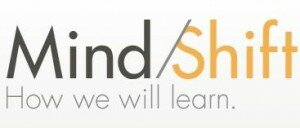Tina Barseghian’s site Mind/Shift is a great resource for learning about some of the most interesting trends and practices in education, schools, and the lives of young learners. Mind/Shift spotlights the kinds of innovations that offer demonstrations of what learning should look like in the 21st century.  Tina and I recently shared a great conversation about mobile technologies, learning, and the state of public education. A good portion of our conversation also focused on how the adoption of technology by black and Latino students compels us to rethink the issues related to technology, diversity, and equity.
Tina and I recently shared a great conversation about mobile technologies, learning, and the state of public education. A good portion of our conversation also focused on how the adoption of technology by black and Latino students compels us to rethink the issues related to technology, diversity, and equity.
At one point we began to talk about how the current economic crisis is impacting public education. At a time when schools, especially low-performing schools, need to be embracing the opportunities that new technologies afford we see historic budget cuts happening all across the nation. There are genuine fears that an already struggling public school system will be degraded even further by dramatic cuts that include massive teacher layoffs, higher student to teacher ratios in the classroom, and a retreat from innovative learning opportunities.
When you think about the future of students who live in poor and working class households the retreat from public education raises a number of serious questions about their preparation for a world that will demand higher-order thinking skills, technological fluency, and, quite simply, the ability to (re)learn. What is at stake? Just as the importance of providing learning activities that enrich digital media literacies is increasing the ability of public schools to deliver those learning opportunities is decreasing.
In my conversation with Tina, I explained the dilemma this way. ”My concern is that as schools are now struggling with budget cuts, digital media and digital literacy is looked as a luxury as opposed to a necessity.” I added, “I understand the enormous pressure that teachers and administrators are under, especially in the public school system. But we need to build a more compelling narrative that digital literacy is no longer a luxury but a necessity.”
Here is the full post, “For At-Risk Youth, is Learning Digital Media a Luxury?”
* Mind/Shift re-posted my piece that considers the potential for mobile media to close the learning divides that exist between low and middle income students, “Ignore the Potential of Mobile Learning, Risk Widening the Digital Divide.“